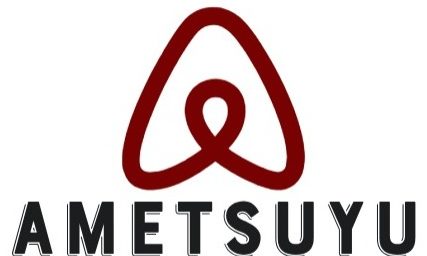Debt is one of the largest financial problems facing modern society—second to poverty, of course—and the reason why debt has persisted is that not many of us know how to tackle it properly. Whether you’ve made a few too many credit card purchases, or made deals with licensed moneylenders, debt is conquerable. If you are the kind of person with multiple accounts to pay off, handling your debt may be a bit trickier, but this article will give you some guidance in terms of paying off your financial burdens, should you put our advice into practice with effort and consistency.
1. Understand Why You Are in Debt
You know you have debt; that’s why you’re reading this. Now, the questions for you begin with how and why. How did you get here? Why did you? Did you swipe your credit card too often? Did you get help from Licensed Money Lender? Did you borrow money from friends or family? In order to effectively tackle your debt, you need to figure out how you came to be indebted in the first place.
This is the real first step because it will prevent you from falling back into debt—at least, for the same reasons as before. For example, if you owe many friends or family members a certain amount of money (let’s say you didn’t budget properly for your expenses), once you’ve settled this debt, you’ll be able to refrain from borrowing from these same people again.
Another example would be your student loan. While student loans from licensed moneylenders are necessary for most people, once you’ve paid that debt, you probably wouldn’t want your future child to have to worry about paying off their own fees for education. Thus, you’re more likely to put a plan in place to prevent this from happening. Understanding what got you into debt in the first place, after accepting that you are in fact in debt, is the first step to recovering your financial freedom.
2. Budget, Budget, Budget
This word is frequently used in the industry of finance, and with good reason: if you don’t actively budget, you willingly stay in the dark about your financial life. A budget shows you, in as much detail as you put in, where your money comes from and where it’s going. If you don’t budget, your mind attempts to keep a list of all these things in your brain, which it fails at doing.
Having a budget is necessary to track your income and expenses, but also to check how you can limit spending in order to divert funds to something else, for example, paying off your debt.
Economist Elizabeth Warren’s budgeting rule, dubbed 50/30/20, is a simple way to begin budgeting. The rule states that 50 percent of your income goes to needs, 30 percent towards wants and desires, and 20 percent towards savings and reducing. For this to work, however, you need to have intimate knowledge of what defines awant and a need. This is where many people go wrong and fall into debt. Needswould be paying your rent, your car, and your phone bill. Wants would be shopping trips, eating out, and buying things you never end up using.
For those heavily in debt, however, increasing the 20 percent to something more substantial, like 40 or 50 percent, can help reduce your debt faster. However, as with most things, this will take a great amount of sacrifice. But it all starts with your budget!
3. Prioritize Your Debt
While this may sound misleading, what it really means is diverting more of your money to your debt than you did before. However, it also means focussing your financial energy: which account will you pay off first, and why? There are two strategies based on this idea, called “debt snowball” and “debt stacking”.
Debt snowball entails spending any extra or spare income on the account with the lowest balance. Interest rate does not apply here. Once you’ve completely repaid that debt, you move on to the next-lowest, and the next, and the next. During each payment, make sure to pay the minimum repayment amount to the rest of your accounts. The psychological thrill of the first full repayment will motivate you to keep going, and this momentum will carry you through right until you’ve paid off all your debts.
Debt stacking follows the same principle, except you’re focusing your finances on paying off the account with the highest interest rate. While paying off the minimum repayments to the rest of your accounts, focusing your income in this way ends up saving you more money in terms of interest payments. However, this may take a bit longer, depending on the balance of the debt with the highest interest.
Another potential strategy would be to pay off the most annoying debts first. This applies more to debts accrued from family members or friends, as they would be far more persistent than your licensed moneylender. Paying these debts, even though they’re likely to have no interest, will give you that same psychological thrill, and will further motivate you to tackle the next payment. This will also get your family and friends off your back.
4. Be Consistent
Overcoming debt is a persistent effort, one that must be made every month, week, and even every day. Refraining from going out—and worse, spending money unnecessarily—is a difficult task, but it is necessary if you plan on clearing your debt before it can accumulate. Once you have conquered your debt—or have a firm plan in place—be consistent.
Do not do anything that will get you into debt; you have worked too hard and come too to go back. Freeze your credit cards, cut them up, or hide them; divert money reserved for your debt into a savings account (Discover more about Singapore Fixed Deposit Rates); save up for purchases rather than purchasing them on credit. Living a debt-free life is a matter of consistency, discipline, and focus, traits that you’ve already acquired if you’ve snuck your way out of debt. Refrain from taking out any loans, and rather save towards the house you would like to buy, or for your future child’s education.
And if you feel the need to celebrate after every triumph over debt, do so without spending money: invite a friend over for lunch, take a walk in the park, or do something creative, like reading, writing, or drawing. Developing activities and hobbies that do not require any money is key to living a debt-free life, and rewarding yourself adequately for the life you have built.

